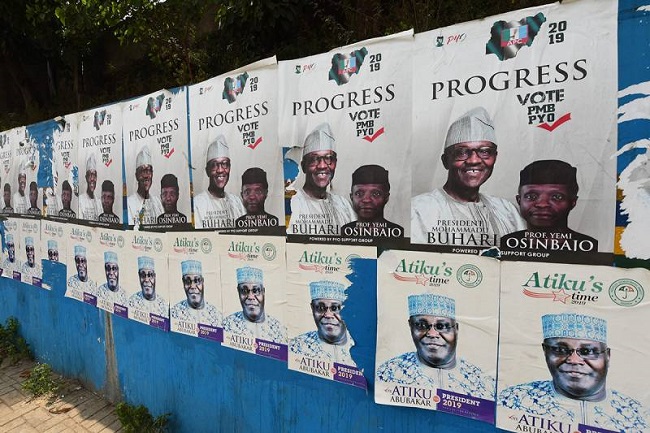
Posters of Nigeria´s presidential candidates Photo: Pius Utomi Ekepei / AFP
“Political power is very much centralised in Nigeria. That’s why everyone strives to be close to the winning candidate in the presidential election. This survivalist strategy has gained prominence. In addition, recent electioneering has focused less on issues and programmes, and more on personalities” says Victor Adetula, head of research at the Sweden-based Nordic Africa Institute.
When Nigeria goes to the polls on 16 February, it will be almost exactly 20 years since the last military regime handed over power to a democratically elected government. The People´s Democratic Party (PDP) held power for 16 years, until 2015 when the current president, Muhammadu Buhari of the All Progressives Congress (APC), won. The PDP and APC are the two main contestants in this year´s elections, even though more than 90 political parties are running.
Ethnicity important
Historically, a candidate’s place of origin, religion and ethnicity have been important factors for consideration when Nigerians vote, according to Adetula. Buhari and his main rival, PDP candidate Atiku Abubakar, both come from the north, are Muslims and belong to the country’s Hausa-Fulani ethnic group.
“The thinking in some circles is that this trend will tend to reduce tension in the polity. This is only a possibility”, Adetula remarks.

